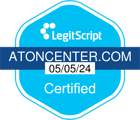The adage says, “If you don’t schedule your work, your work will schedule you.” Addiction often forms from a disorganized lifestyle. Whether through stress, trauma, depression, or other factors, there’s usually something that makes you feel a loss of control over in your life when you first become dependent on drugs or alcohol. Recovery from addiction is a lifelong process of healing and reaffirming your sense of control so you no longer need substances to manage. Being able to manage a healthy lifestyle is just as difficult as overcoming the initial detox, and is best executed with a drug relapse prevention plan. At our San Diego rehab and detox, we focus a lot on helping our patients not only recover from their addiction but to transition into a life of manageable drug relapse prevention. Drug relapse prevention is a multi-faceted process, which means juggling an effective daily schedule, stress management, and social life in a way that contributes to your recovery.
Managing Drug Relapse Prevention
An effective daily schedule is fundamental to our health. If you’ve ever pulled an all-nighter, you should know that no amount of caffeine can make up for the lost hours of sleep. Our bodies have an internal clock that dictates our patterns of drowsiness and alertness, sleep and wake. Letting your body function on its own clock will keep your circadian rhythm in tune with the responsibilities of your life. Studies have shown that out-of-sync circadian rhythms can lead to sleep deprivation, mental health issues, and even the formation of cancer. AToN focuses a lot on maintaining a healthy schedule, including time for social and physical health activities, like jogging, swimming, or outdoor aerobic activities with groups. Not only do these activities improve your health, but some research indicates that exercise can promote healthy highs which reduce the impact of drugs and alcohol and improve your resilience to addiction and relapse.
Self-Care and Addiction
Proper self-care is more than just exercise, however. Even with a strong daily schedule, healthy habits like diet and aerobic exercise, we still need to keep our mind healthy and tuned up. Mindfulness exercises and cognitive behavioral therapy are two great options to improve drug relapse prevention by managing the negative symptoms that not only contribute to addiction. Both focus on relaxing your mind and body by understanding the direct physical consequences of stress, anxiety, and cravings. By learning to understand the symptoms, you can direct your body on how to better manage them. The best part about these therapies is, once you learn them with a trained therapist, you can take them home with you and use them at any time. We can’t predict every twist and turn life will throw at us, but by having tools to manage these situations as they arise, we can reduce the impact they have on our mental and physical well-being.
Community Prevents Relapse
Our social health is just as important to well-being as our physical and emotional health. Friends and family are often the best way to motivate ourselves to persevere through the toughest parts of life. We spend a lot of time setting up fun, friendly, social events like road trips, hiking, and sports to encourage our guests residents to develop new and powerful bonds with others on the journey to recovery. Close friends with similar life goals make great accountability partners, holding you responsible for your recovery and offering a helping hand whenever you might need it.
Originally posted on November 15, 2019 @ 5:00 am


















